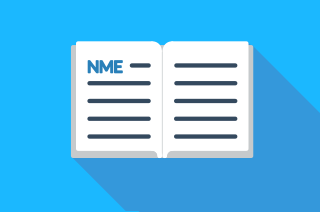The review of the copyright framework represents a substantial part of the European Commission’s Digital Single Market strategy, presented in May last year. Some proposals have already been delivered, for instance on ‘cross-border portability of online content services’ (geoblocking) and the long awaited implementation of the World Intellectual Property Organisation’s Marrakesh Treaty, facilitating access to published works for persons who are blind or visually impaired.
 Now, all eyes are on the new copyright proposal which aims to reform the 2001 InfoSoc directive. It is expected to be published by September 2016 and will aim to create a more harmonised and coherent EU copyright regime by updating IP rights enforcement procedures, introducing the possibility of a neighbouring right for the publishing industry, putting in place a ‘follow the money’ approach to fight piracy and clarifying the liability regime of online intermediaries.
Now, all eyes are on the new copyright proposal which aims to reform the 2001 InfoSoc directive. It is expected to be published by September 2016 and will aim to create a more harmonised and coherent EU copyright regime by updating IP rights enforcement procedures, introducing the possibility of a neighbouring right for the publishing industry, putting in place a ‘follow the money’ approach to fight piracy and clarifying the liability regime of online intermediaries.
But with so much on the plate, we are asking ourselves: what would be a good copyright framework for the news media industry? One that would enable publishers to sustain investment in high quality content in a digital environment? Certainly, one that supports news media’s vital role in promoting democracy and media pluralism? This strikes us as essential. Look no further and keep on reading!
Monetisation of content
The oldest printed newspapers date from the 17th century when printing took over from hand written news sheets. These were distributed widely and sold locally. Organised distribution has since enabled large numbers of citizens to be informed of current affairs, to scrutinise public authorities and hold them to account and to take informed decisions enabling them to exercise their democratic rights.
We’ve come a long way since. News media was quick to embrace online publishing, appreciating the possibilities for easy distribution with global access and use of publishers’ content is now easier than ever before.
However, we all know the cliché there is no such thing as a free lunch. When we go grocery shopping, we pay for the milk and eggs we buy – much like when we pay for our newspaper at the kiosk, or via a subscription. News media publishing is a business, dependant on income revenues like any other to pay staff, to grow, innovate and to develop sustainable journalism for citizens in Europe and beyond. And as news media publishing is a commercial business like any other, publishers aim to generate profit.
Publishing news media content online give consumers another way to access content but, the business remains largely the same as in the offline environment: publishers rely on subscription fees and advertising revenues to sustain the creation of quality content, to pay their staff and maintain the distribution channels, etc.
Content may be free to access, it is not free to create. In a world where news media publishers can no longer rely on traditional advertising models due to smart algorithms, but also adblocker technologies, copyright becomes even more important for sustaining their business. Revenue is needed to protect a publisher’s ability to continue to invest in quality journalism, to sustain the production and distribution of news products to the public and to invest in innovative news ventures. It allows for the rights holders to be paid for the use of the product they created and thereby enabling consumers to be informed and participate in the democratic process.
News Media Europe wholeheartedly welcomes the European Commission’s efforts on including neighbouring rights for publishers as part of the package of reforms of European copyright legislation. This would give publishers rights comparable to those of film and recorder producers and broadcasting organisations, which recognise the organisational and financial effort necessary for the creation of the work.
Neighbouring rights should only be applied to the commercial use of content. Publishers will continue to encourage consumers to share articles through social media, liking press content, tweeting and linking articles on their own web pages. Publishers want their content to be seen by as big an audience as possible.
Freedom of contract
News media companies are developing their future in an exciting and challenging environment. Europeans are hungry for news that is reliable and professionally produced, served on a variety of platforms and distribution channels – desktops, tablets and mobile devices, printed press, television and radio.
News media companies need to be as platform agnostic as their audiences. So to be able to serve their audience wherever they want to consume news media, publishers should ensure that they have the rights to produce and distribute the content they’ve invested in across all these platforms.
Copyright enables publishers to produce and distribute news products and also provides protection against unlicensed use of content. In this context, freedom of contract becomes a vital element in the copyright system. The best way to enhance the digital market is to let freedom of contract prevail. European regulation on “copyright contracts” would stifle the market.
Our role in a democratic society
The news media industry plays an essential role in guaranteeing an independent, inquisitive, free press – which ultimately represents the basis of our democracy. News media stimulates the societal debate on a broad spectrum of subjects. Everyday, our sector fosters the open exchange of information and opinions, puts in place safeguards for media freedom and pluralism and exposes wrongdoing and corruption. The news media industry contributes to the promotion of tolerance, freedom and active citizenship.
The coming copyright reform should ensure that the News Media industry can continue to contribute it vital and unique function in today’s digital economy and Europe’s democracy.
This blog post was a contribution by:
Sarah Davis, Chairman of News Media Europe’s Copyright task force.
Wout van Wijk, Executive Director at News Media Europe.
Francesco Vinci, Policy Advisor at News Media Europe.










